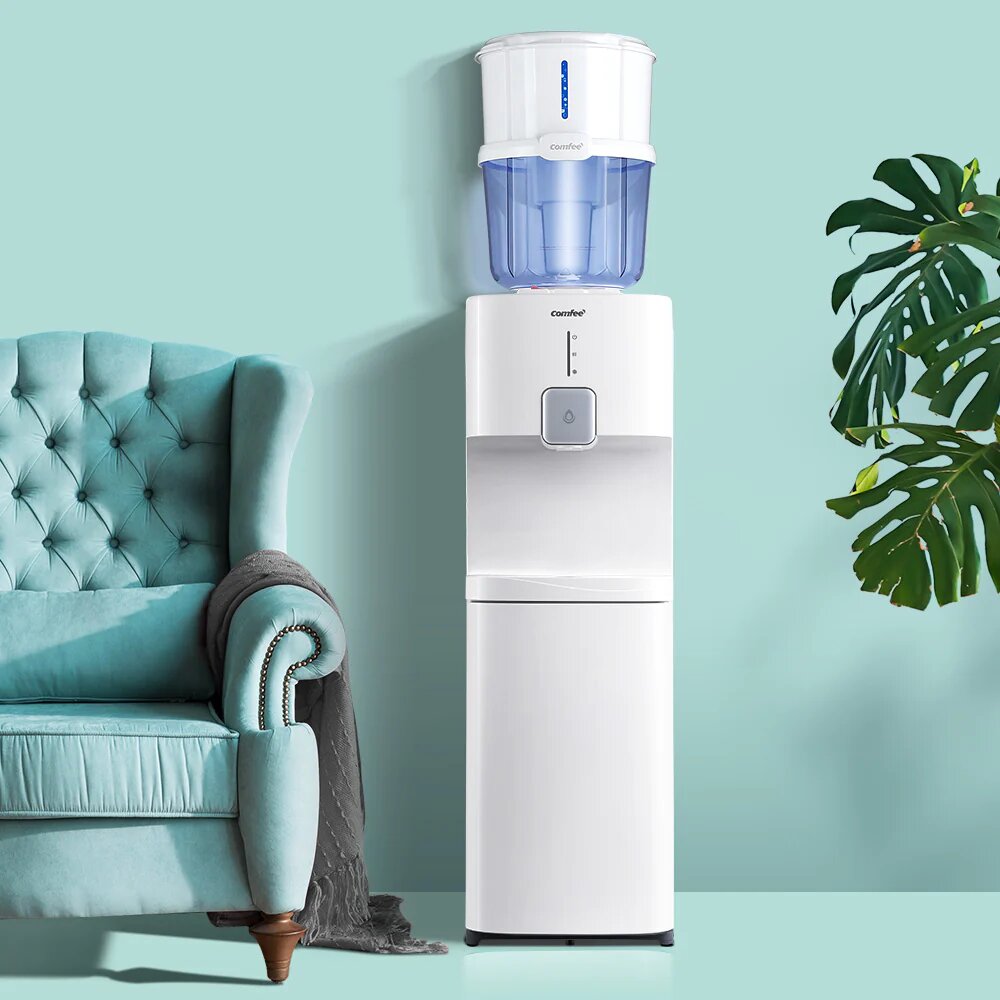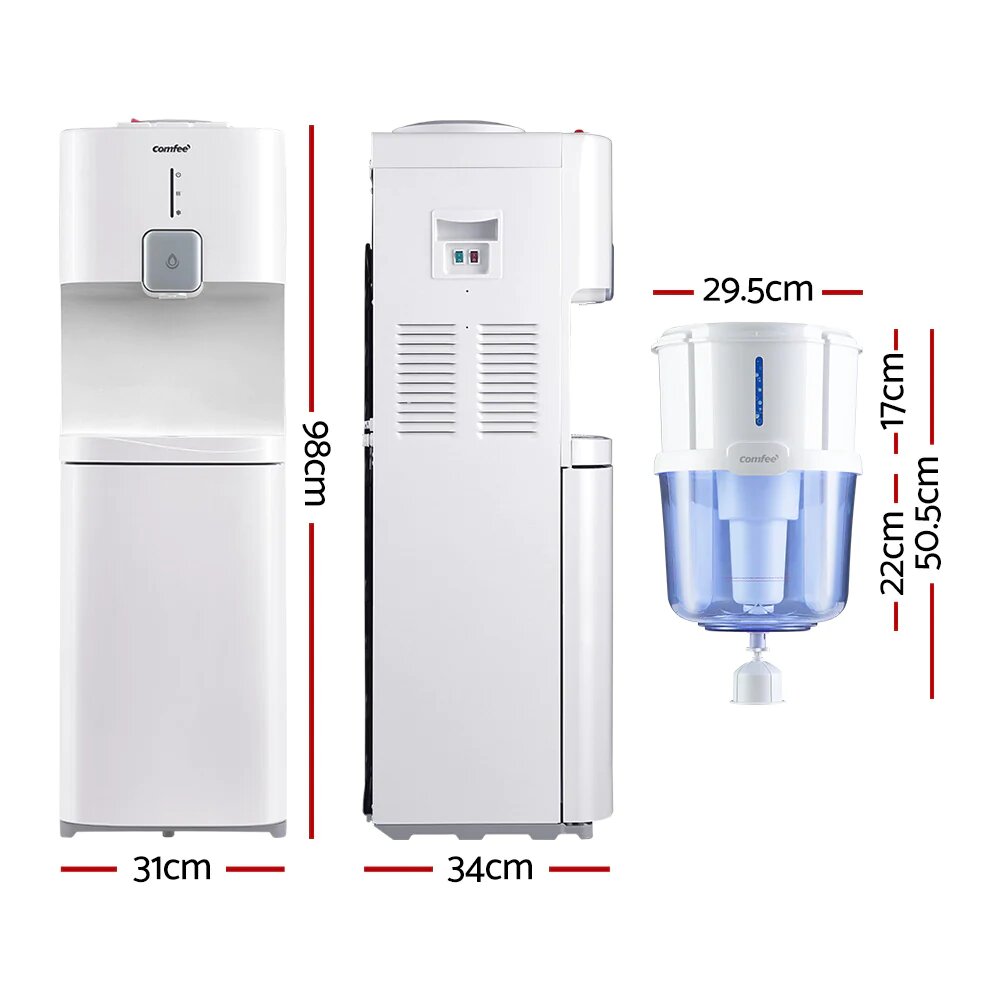In a society where access to clean drinking water is crucial, water dispenser have developed as a practical and effective option.
A water dispenser is a device that allows fast access to both hot and cold water, making it perfect for homes, businesses, and public settings.
This article discusses the multiple advantages of utilising a water dispenser, the several varieties available, aspects to consider when selecting one, maintenance suggestions, and a glance into their future.
Benefits Of Using A Water Dispenser
- Convenient Water Access
Water dispensers give the pleasure of having clean and filtered water readily accessible.
With a single touch of a button, you may enjoy a delicious glass of cooled water or brew your favourite hot beverage without waiting for a kettle to boil.
- Encourages Hydration
Staying hydrated is vital for general health and well-being. Having a water fountain in your area acts as a continual reminder to drink more water, helping you maintain appropriate hydration levels simply.
- Cost-Effective Solution
Investing in a water dispenser reduces the need to buy bottled water regularly. This may drastically save expenditures in the long term and also assist in decreasing plastic waste, benefiting the environment.
- Environmentally Friendly
As environmental awareness rises, choosing for a water dispenser becomes an eco-friendly alternative.
By utilising reusable water bottles and minimising the need for single-use plastic, you contribute to a better earth.

Types Of Water Dispenser
Water dispensers come in many kinds to suit different tastes and demands. Let’s investigate some of the popular types:
- Bottleless Water Dispenser
Bottleless water dispensers are directly linked to the main water supply. They contain built-in filtration systems that guarantee the water is pure and safe to drink.
These dispensers are suitable for companies and residences with a steady need for water.
- Bottled Water Dispenser
Bottled water dispensers utilise big water bottles, generally 3 to 5 gallons, which are put on top of the dispenser. They are suited for places with restricted access to a water supply connection.
- Countertop Water Dispenser
Countertop water dispenser is tiny and meant to fit on kitchen counters or office workstations. They are space-efficient and provide a suitable option for limited locations.
- Freestanding Water Dispenser
Freestanding water dispensers resemble standard water coolers and may be put anyplace with a power supply. They frequently come with extra amenities like cup holders and storage drawers.
Factors To Consider When Choosing A Water Dispenser
Selecting the proper water dispenser entails evaluating many crucial factors:
- Capacity
Evaluate the water consumption demands of your family or workplace to determine the optimum dispenser size. Larger households or companies will benefit from high-capacity dispensers.
- Filtration System
If you like filtered water, consider dispensers with an effective filtering system that eliminates pollutants and toxins.
- Hot And Cold Water Options
Ensure the dispenser has both hot and cold water features, catering to varied drinking tastes.
- Energy Efficiency
Look for energy-efficient ones that may help you save on power expenses while enjoying the convenience of the dispenser.
- Maintenance
Consider the simplicity of maintenance, including filter replacement and cleaning needs, to maintain the dispenser in optimum condition.
How To Maintain A Water Dispenser
Proper maintenance maintains the lifetime and sanitary functioning of your water dispenser. Follow these crucial maintenance tips:
- Cleaning And Sanitizing
Regularly clean the outside and inside of the dispenser, including the drop tray and nozzles. Sanitise it to avoid the buildup of hazardous germs.
- Replacing Filters
Follow the manufacturer’s directions and change filters as needed to preserve water quality.
- Regular Servicing
Schedule frequent service by a skilled technician to detect and treat any possible concerns.
- Troubleshooting Common Issues
Despite its dependability, water dispenser may experience troubles from time to time. Here are some frequent difficulties and their solutions:
- Water Leaks
Check for loose connections or broken components. Tighten connections or replace broken components to resolve leaks.
- Unusual Noises
Unusual sounds may indicate air bubbles or a stuck dispenser. Purge the air or check for blockages to remove the noise.
- Dispenser Not Dispensing Water
This problem might stem from a blocked waterline or a broken pump. Clear the waterline or call a professional for help.
- Water Tastes Strange
A peculiar flavour might be due to an expired or saturated filter. Replace the filter to restore the water’s flavour.

The Future Of Water Dispenser
The water dispenser business continues to grow, with manufacturers concentrating on novel technology to increase user experience.
Expect to see developments in filtration systems, energy efficiency, and smart features that let users manage dispensers remotely.
Conclusion
Water dispenser have transformed how we get and consume drinking water. Their ease, cost-effectiveness, and environmental advantages make them a popular option for homes and companies alike.
By selecting the correct sort of dispenser and keeping it properly, you may enjoy clean and refreshing water anytime you need it.
FAQs
Q1: Can I use a water dispenser at home?
Yes, a water dispenser ideal for residential usage and may be a useful addition to your kitchen or dining area.
Q2: Do water dispensers filter the water?
Some water dispensers come with built-in filtration systems that may cleanse the water, ensuring it is safe to drink.
Q3: How frequently should I clean my water dispenser?
For best hygiene, clean the water dispenser at least once a month, and sterilise it every three months.
Q4: Can I use a water dispenser without electricity?
Bottled water dispensers can work without electricity, making them useful for places with power outages.
Q5: Are water dispensers ecologically friendly?
Yes, employing a water dispenser decreases the need for single-use plastic bottles, helping to a greener world.
You may also like
-
Unveiling the Top Picks: The Ultimate Guide to the Best Head Shavers in 2024
-
Choosing The Right Palette Insights into Professional Painting Contracts
-
Wear Your Imagination: Customized Text and Graphics T-shirt Printing in Sharjah
-
Camp Adventurer’s Kitchenette : Compact Culinary Haven
-
Kitchen Appliances Shopping Guide: How to Choose the Perfect Electronic Store

